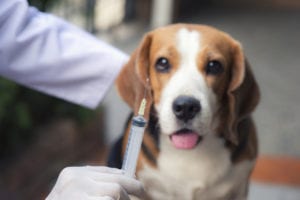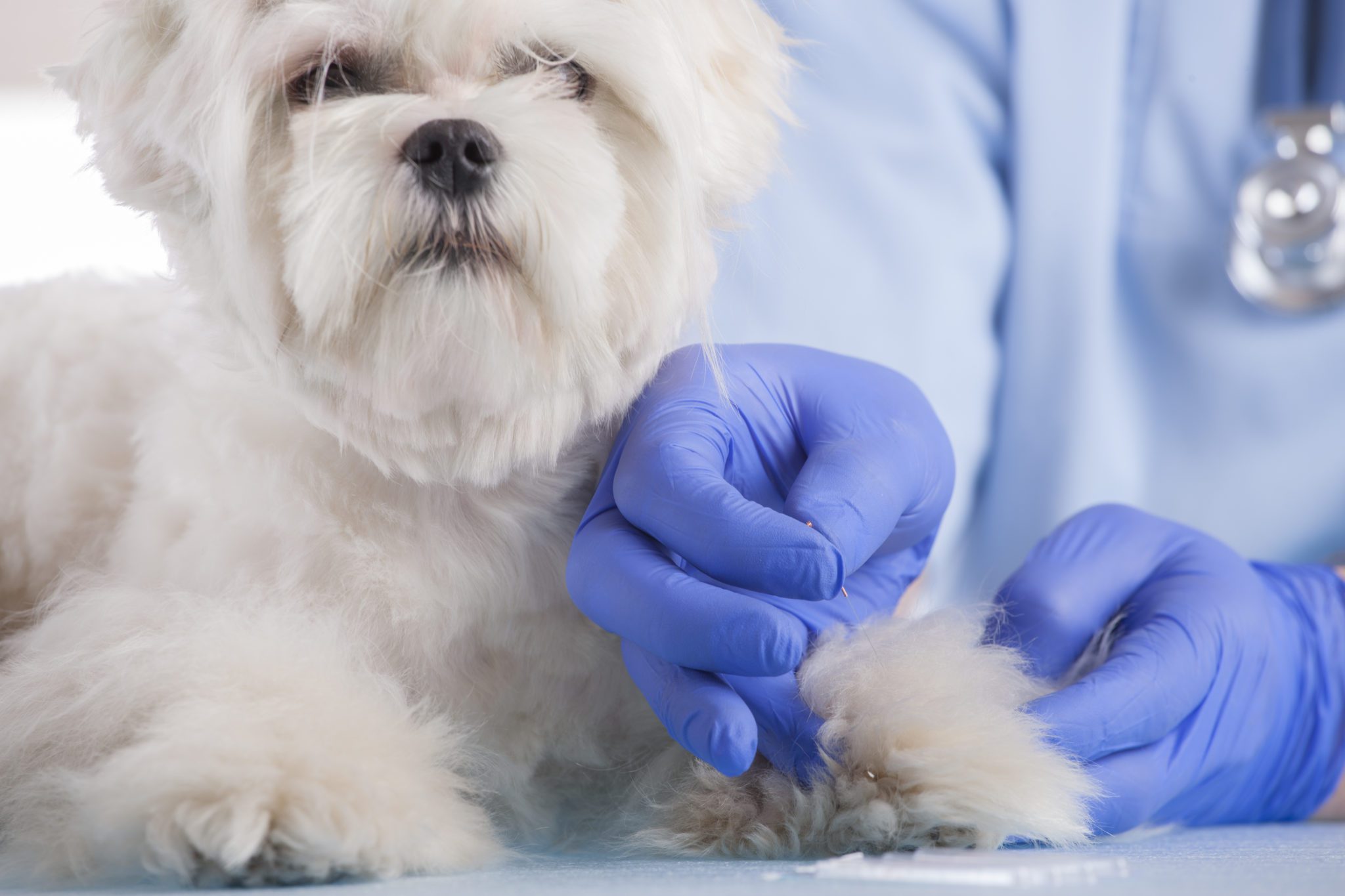
Why Are Vaccinations Required for Dogs in Boston?

What Are Dog Vaccines?
Vaccinations contain antigens, which are weakened versions of the virus or bacteria that causes a certain disease. Vaccines do not cause any disease, but they do stimulate the immune system to react to the antigen.
This creates a sort of muscle-memory for your pet’s immune system—if they ever come in contact with the real disease, the body will be able to fight it off entirely or significantly reduce the severity of the disease.
Vaccines Required for Dogs & Cats in Boston
Cat and dog vaccinations are considered either core or lifestyle vaccines. Core vaccines are those that are highly recommended, and even required for all dogs and cats. Meanwhile, lifestyle vaccines are based on your pet’s unique needs.
Core Vaccinations Required for Dogs
These are vaccinations required for dogs and cats or at least highly recommended. The rabies vaccine is one that is often required by state law. In Massachusetts, all dogs and cats are required to receive their first rabies vaccine between 12 weeks and 6 months of age, as well as boosters throughout their lives to maintain their immunity.
The other core vaccines come with high recommendations from veterinarians. Canine distemper, hepatitis, and parvovirus are all highly contagious and dangerous among dogs. These three diseases are prevented with a combination vaccine, DHPP, which includes antigens for all three as well as parainfluenza.
For cats, feline distemper (panleukopenia), calicivirus and rhinotracheitis are all considered core due to the prevalence, virulence, and the threat they pose to your cat’s health. The combination FVRCP vaccine protects your cat from all three of these diseases.
Lifestyle Vaccinations
As their name suggests, lifestyle vaccines are recommended for pets based on their lifestyle. Factors your vet will consider include:
- Medical history
- Age
- If they are indoors or outdoors
- Whether they travel
- Environment
- And more

For dogs, lifestyle vaccines include Bordetella, Leptospirosis, Lyme disease, and canine influenza. Bordetella and canine influenza are often recommended for dogs that are boarded often, visit the groomer, participate in group training, and frequent the dog park.
Leptospirosis, a bacterial infection, is recommended for dogs who are often outdoors in wildlife areas. Lyme disease can also help protect the more adventurous dogs who might be hiking in areas where ticks are present.
For cats, lifestyle vaccines include feline leukemia, Bordetella, Chlamydophila felis, and feline immunodeficiency virus. All of these may be recommended for outdoor cats who are more likely to come into contact with feral cats who may be infected with one or more of these diseases.
A Typical Vaccination Timeline for Boston Dog Owners
Dogs start their vaccinations as puppies. For the first few weeks of their lives, they’ll receive protective antibodies from their mother’s milk. But as they are weaned, these antibodies diminish. Their initial vaccination series will start at about 6-8 weeks of age and continue at intervals of 3-4 weeks until they are 16 weeks of age. Boosters will then be needed throughout their adult life.
Most vaccines require annual boosters, yet some are designed to be given to pets every three years. These can include the core vaccines like DHPP, FVRCP, and rabies and are subject to your veterinarian’s discretion.
Vaccination Side Effects and Risks for Dogs in Boston
Severe side effects of vaccinations are rare, but pets can feel a little sore at the injection site and might be a little lethargic following their appointment. More severe reactions could include an allergic reaction, injection site tumors, and immune disease, yet these are very rare.
Still, if you have any concerns about the safety of your dog’s vaccines, talk to your veterinarian. In most cases, the risk of vaccines is significantly less than the risk of the disease it protects against. If you do notice any change in behavior or signs of illness following a vaccination, call your veterinarian immediately.
Recent Posts
- « Previous
- 1
- 2
- 3
- Next »










